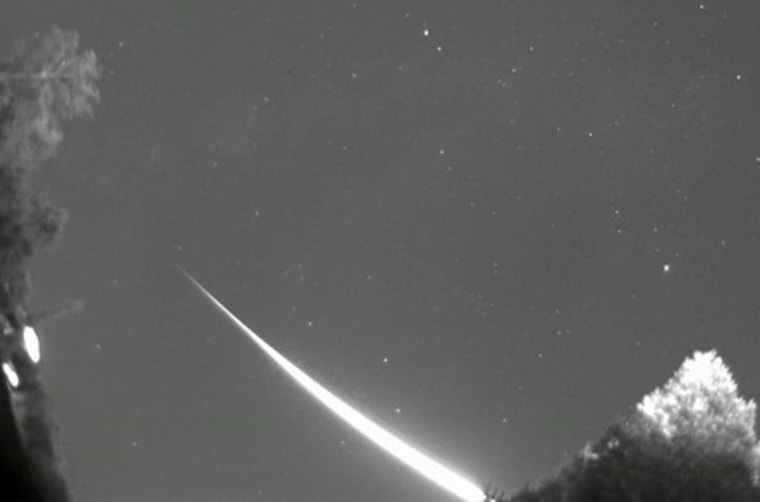Streaking fireballs are lighting up California skies and stunning stargazers, and the show is just getting started, professional observers said.
The Oakland Tribune reported that the exploding streaks were especially visible Wednesday night over the San Francisco Bay Area and other parts of Northern California, with reports of bright fireballs and loud booms from Santa Cruz County to Mendocino County.
"Happened to look over, saw like a crescent-shaped object, reddish orange in color," Edward Pierce told KGO-TV. "As it went away it started getting larger. Kind of expanding."

Jonathan Braidman, an astronomer at Oakland's Chabot Space and Science Center, told the station that what Pierce and others saw were small pieces of rock and metal from space. The fragments crashed through the earth's atmosphere, "ionizing and setting the air on fire in its wake," he said.
Some of the shooting stars are part of the Orionid meteor shower, which is due to hit its peak this weekend. Under optimal viewing conditions, the rate could reach 50 to 70 meteors per hour late Saturday and early Sunday.
The Orionids are so named because the meteors, left behind in the orbital track traced by Comet Halley, appear to originate from a spot in the constellation Orion. One particularly bright fireball wowed observers in the Bay Area at around 7:40 p.m. PT, but astronomers said that meteor followed the wrong trajectory for an Orionid.
"It was so low and close I thought it was someone setting off fireworks," Beppy Tobeler told NBC Bay Area.
NBC Bay Area's chief meteorologist, Jeff Ranieri, said that warm temperatures, a thin crescent moon and cloud-free skies made the bright lights more visible, a phenomenon that should only increase as the weekend approaches and the shower continues.
This report includes information from The Associated Press, NBC Bay Area and NBC News.